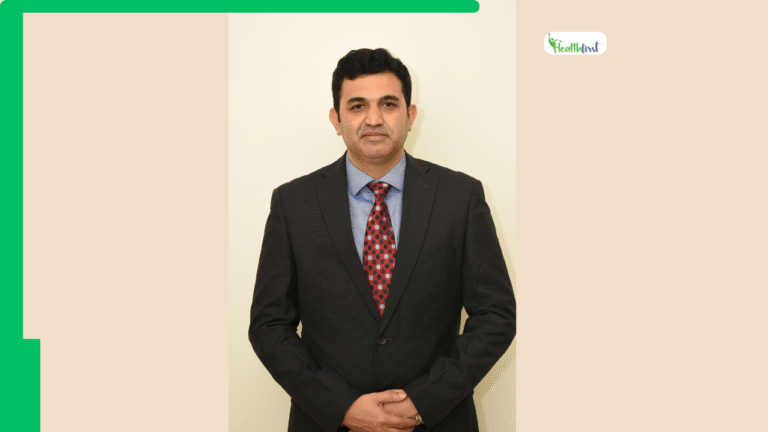In recent years, naturopathy has gained increasing recognition as a holistic approach to healing, emphasizing the power of nature in restoring and maintaining health. In an age where conventional medicine often focuses on treating symptoms, naturopathy looks at the root cause of ailments and promotes the body’s inherent ability to heal itself. With natural remedies, lifestyle changes, and a focus on prevention, naturopathy offers a refreshing and sustainable way to enhance your overall well-being.
Introduction
In a world where fast-paced living has led to a rise in lifestyle diseases, many people are turning to natural and holistic approaches to take control of their health. Naturopathy is one such approach that emphasizes prevention, wellness, and the healing power of nature. This blog will explore what naturopathy is, how it works, and the benefits it can offer to transform your health. By understanding the key principles and treatments of naturopathy, you’ll be equipped to make informed choices that align with your wellness goals.
What is Naturopathy?
Naturopathy is a system of alternative medicine that promotes natural healing by using a combination of therapies. These therapies range from nutrition and herbal medicine to physical therapies and mind-body techniques. Unlike conventional medicine, which often treats the symptoms of a disease, naturopathy focuses on treating the whole person—mind, body, and spirit.
This approach is deeply rooted in the belief that the body has the innate ability to heal itself when provided with the right conditions. By identifying and addressing the root cause of a condition, naturopathy seeks to restore balance and promote long-term health.
Key Principles of Naturopathy
Naturopathy is based on several foundational principles, which guide its practice. These principles include:
- The Healing Power of Nature (Vis Medicatrix Naturae): Naturopathy believes in the body’s inherent ability to heal itself, given the right conditions and support.
- Identify and Treat the Cause (Tolle Causam): Rather than focusing solely on symptoms, naturopathy aims to identify the underlying cause of disease and address it.
- First, Do No Harm (Primum Non Nocere): Naturopaths use treatments that minimize the risk of harmful side effects and promote safe healing.
- Doctor as Teacher (Docere): Naturopaths educate their patients about lifestyle changes, preventive measures, and self-care techniques.
- Treat the Whole Person: Naturopathy takes into account not only the physical symptoms but also the mental, emotional, and spiritual health of the patient.
- Prevention: Naturopathy emphasizes the prevention of illness by promoting a healthy lifestyle and recognizing early warning signs of disease.
The Role of a Naturopath
A naturopath is a healthcare professional who specializes in natural medicine. Naturopaths assess their patients’ health holistically, looking at factors such as diet, lifestyle, mental health, and environment. They create personalized treatment plans designed to restore balance and prevent future health issues. Through a combination of education, nutrition advice, and natural remedies, naturopaths aim to empower patients to take control of their health.
Naturopathy vs. Conventional Medicine
While conventional medicine focuses on diagnosing and treating diseases through medications or surgery, naturopathy takes a more holistic and preventive approach. Here are some key differences:
- Focus: Conventional medicine often targets the symptoms, while naturopathy addresses the root cause of the condition.
- Treatment Modalities: Conventional treatments rely heavily on pharmaceuticals, whereas naturopathy emphasizes natural remedies, including herbs, diet, and lifestyle changes.
- Approach to Health: Conventional medicine focuses on curing diseases, while naturopathy focuses on preventing diseases and maintaining overall health.
Common Naturopathic Treatments
- Herbal Medicine
Herbal medicine uses plants and plant extracts to support healing. Herbs like turmeric, echinacea, and ashwagandha are commonly used to address inflammation, boost immunity, and reduce stress.
- Nutrition and Diet Therapy
A balanced diet is central to naturopathy. Nutritional therapies focus on the healing power of food to support the body’s natural processes. Foods rich in antioxidants, vitamins, and minerals are often recommended to boost energy and improve overall health.
- Hydrotherapy
Hydrotherapy uses water treatments like steam baths, cold compresses, and baths to stimulate circulation and relieve pain.
- Physical Therapy and Exercise
Naturopaths often recommend physical therapies like massage and stretching exercises to promote mobility, reduce pain, and enhance overall well-being.
- Homeopathy
Homeopathy involves using diluted natural substances to stimulate the body’s healing process. It’s often used to treat chronic conditions, allergies, and skin disorders.
- Mind-Body Techniques
Techniques such as meditation, yoga, and deep breathing are used to reduce stress and promote mental clarity, which is crucial for overall health.
How Naturopathy Can Transform Your Health
Naturopathy has the potential to address a wide range of health concerns by focusing on prevention, lifestyle modification, and natural remedies. Here’s how it can make a difference:
- Strengthening the Immune System
Naturopathy emphasizes immune-boosting foods and herbs, helping to reduce the risk of infections and illnesses.
- Managing Chronic Conditions
Natural remedies and lifestyle changes recommended in naturopathy can help manage chronic conditions like diabetes, arthritis, and hypertension without the side effects associated with conventional treatments.
- Enhancing Mental Health
Naturopathy promotes mental wellness through therapies like meditation, exercise, and nutrition. It can help manage conditions such as anxiety and depression by addressing both the physical and emotional aspects of health.
- Preventing Diseases
Naturopathy focuses heavily on preventing illness by encouraging a healthy lifestyle, a balanced diet, and stress management techniques, thus reducing the risk of developing more severe health conditions in the future.
Integrating Naturopathy into Daily Life
You can start incorporating naturopathic principles into your life by:
- Eating a balanced diet rich in whole foods, fruits, and vegetables.
- Practicing stress-relief techniques such as meditation and deep breathing.
- Using natural remedies like herbs and supplements under professional guidance.
- Engaging in regular physical activity and focusing on both mental and physical wellness.
The Future of Naturopathy in Healthcare
As more people seek out natural and holistic health solutions, naturopathy is becoming increasingly integrated into mainstream healthcare. Its emphasis on prevention and treating the root cause of illness complements conventional medicine, offering a more comprehensive approach to wellness.
With growing interest in alternative therapies, naturopathy has the potential to play a key role in the future of healthcare, providing sustainable solutions for a healthier population.
Conclusion
Naturopathy is not just a form of alternative medicine; it’s a lifestyle that promotes health and well-being by tapping into the body’s natural ability to heal. By focusing on prevention, treating the root cause of disease, and using natural therapies, naturopathy offers a holistic approach that can transform your health in profound ways.
Whether you’re dealing with chronic conditions or simply want to improve your overall well-being, naturopathy provides a pathway to healing that emphasizes balance, natural remedies, and sustainable lifestyle changes.









